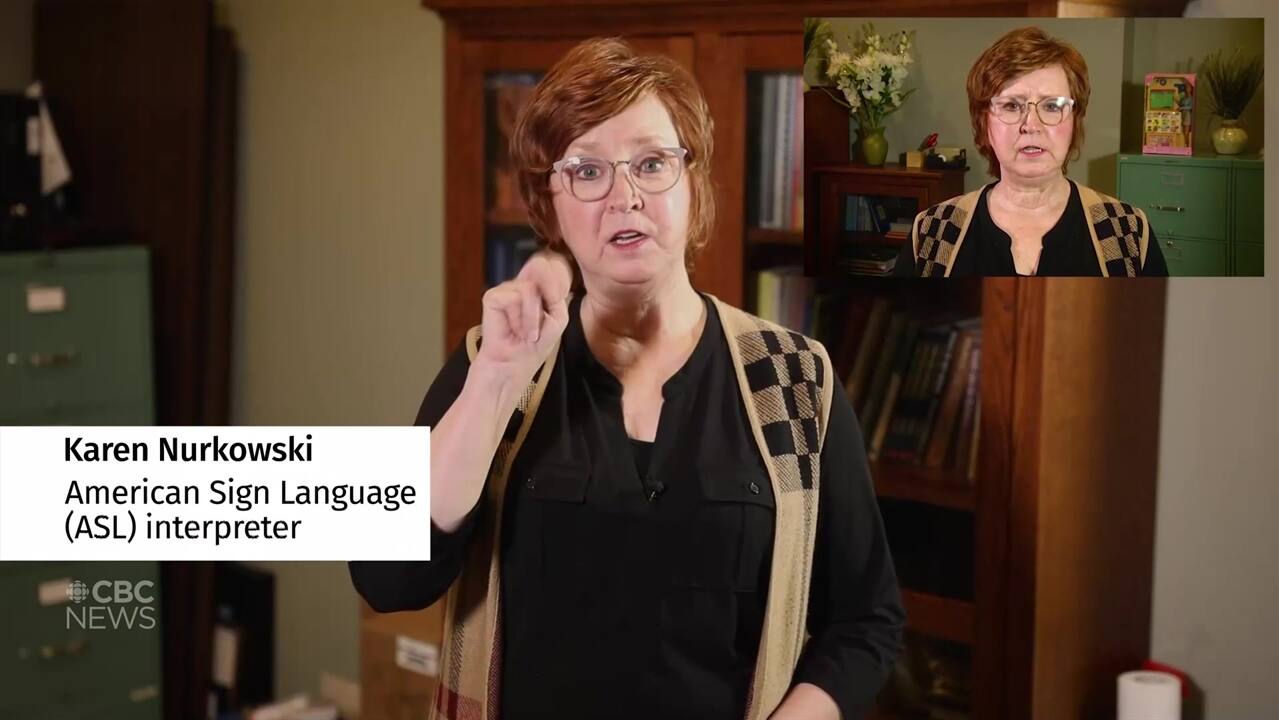SGI handbook can be translated in more than 130 languages but not American Sign Language

Aspiring drivers can translate the text of the Saskatchewan Driver's Handbook on the SGI website into more than 130 languages — but American Sign Language (ASL) is not one of them.
That's why Adam Stratychuk, who has been deaf his entire life, is on a mission to make it more accessible for deaf and hard of hearing people to get their driver's licence.
"Fifty-four per cent of jobs require a driver's licence," Stratychuk said. "We are already limited because of deafness, but if we have a driver's licence it opens up a lot of doors for opportunity."
Stratychuk was hired by the Saskatchewan Deaf and Hard of Hearing Services to translate the province's entire driver's handbook into ASL. The goal is to share the translations in a series of YouTube videos. Stratychuk and his team have been working on the project since March.
People who are deaf or hard of hearing can get their Class Five or Class Seven driver's licence in Saskatchewan with no restrictions.
Stratychuk worked as a tow truck driver for 11 years. He said his driving instructor and driving examiner, who taught and tested him when he was getting his licence in high school, doubted his driving capabilities.
"I had to kind of fight to say 'yes, I could drive and deaf people do drive,'" Stratychuk said.
"It's all about sight and what you're visually aware of."

Guest host Candice Lipski speaks with the Saskatoon Morning's Theresa Kliem about the importance of the translation project to the deaf and hard of hearing community.
Challenges with relying on interpreters
Stratychuk got his driver's licence with the help of ASL interpreters, but he said that's not necessarily an option for all people.
"We have a limited pool of interpreters available to us…and we have to pay for them to be there, and if the person fails we have to redo the process and that really eats up a lot of our resources," Stratychuk said.
Xander Rinaldi, who is profoundly deaf, recently moved to Saskatoon. He's been having trouble finding a job because many require a driver's licence — and he hasn't been able to get one because there isn't education available in ASL.
"I need to get an ASL tutor or interpreter to help me translate [the Saskatchewan Driver's Textbook] from English to ASL for me to have understanding," Rinaldi told CBC.
"But there is an expense with the interpreter."

Your frequently asked questions about ASL interpreters
Why don't American Sign Language (ASL) interpreters wear masks? And how many people tuning in to COVID-19 briefings rely on their services? Saskatchewan interpreter Karen Nurkowski answers your frequently asked ASL questions.
Stratychuk says that some people who are deaf or hard of hearing are more comfortable using ASL because it's their first language or they use the language more than English.
He hopes the ASL videos will make it easier for some people who are deaf or hard of hearing to comprehend the content.
"As a first-language user in ASL, I try to do it in a way that makes it understandable."
He says people who are deaf and hard of hearing face unique challenges when it comes to education.
"One major distinction between deaf people and other linguistic minority groups, is that deaf people do not enjoy automatic access to much-needed life solutions through their parents," Stratychuk said in an email to CBC.
"In spite of their minority status, in almost all other linguistic minority groups — families speak the same language within the household."
SGI is not an official partner of Stratychuk's video project, but it welcomes the work that Stratychuk and his team are doing.
- Get the news you need without restrictions. Download our free CBC News App
"If it helps driver's licences become more accessible to people who are deaf or hard of hearing, that will increase employment opportunities, increase the quality of life for those people," Tyler McMurchy, an SGI spokesperson said.
"It's really a good thing."
Stratychuk hopes to have the entire series of videos wrapped up by the end of August. If the SGI is happy with the final product, Stratychuk and his team at Saskatchewan Deaf and Hard of Hearing Services could eventually translate the SGI exam questions into ASL format as well.
"My goal here is to make sure that other people can be successful," he said.
ABOUT THE AUTHOR
Reporter
Will McLernon is an online journalist with CBC Saskatchewan. If you have a tip or a story idea, send him an email at will.mclernon@cbc.ca
With files from Theresa Kliem
*****
Credit belongs to : www.cbc.ca
 MaharlikaNews | Canada Leading Online Filipino Newspaper Portal The No. 1 most engaged information website for Filipino – Canadian in Canada. MaharlikaNews.com received almost a quarter a million visitors in 2020.
MaharlikaNews | Canada Leading Online Filipino Newspaper Portal The No. 1 most engaged information website for Filipino – Canadian in Canada. MaharlikaNews.com received almost a quarter a million visitors in 2020.







